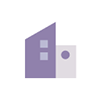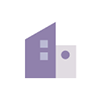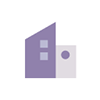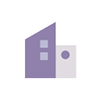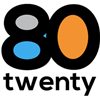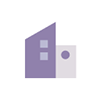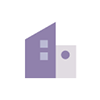MARKET SUMMARY :
Read the overview of this opportunity to understand what skills, including and relevant soft skills and software package proficiencies, are required.
Hi-Desert Medical Center
Hi-Desert Memorial Health Care District distinguishes itself as the leader for healthcare services of the Morongo Basin. A modern, nonprofit 59-bed acute primary care hospital is located on the principal campus of the Hi-Desert Medical Center. Services include a wide range of quality inpatient and outpatient diagnostic, treatment and rehabilitation services, home health and hospice services, and a variety of community outreach services.
Hi-Desert Medical Center is the primary provider of health services in the Morongo Basin, serving a population of more than 53,000 people. Patients benefit from caring qualified staff and advanced technology all in a convenient setting located in Joshua Tree, California.?The medical center was born of a consolidation of two previously existing hospital districts : ?the Hi-Desert Memorial Hospital in Yucca Valley and the Twentynine Palms Hospital District.
Hi-Desert Memorial Health Care District is comprised of 179 licensed beds : the Hi-Desert Medical Center, a 59-bed primary care hospital, and the Continuing Care Center, a 120-bed skilled nursing facility on the campus of Hi-Desert Medical Center.
Hi-Desert Medical Center has more than 90 physicians in 25 medical specialties and?over 600?employees. Licensed by the State of California and fully accredited by the Joint Commission on Accreditation of Health Care Organizations and the California Medical Association, the hospital holds membership in the California Healthcare Association and the Hospital Council of Southern California.
http : / / www.hdmc.org /
POSITION SUMMARY
The Chief Nursing Officer provides strategic leadership as the senior executive position responsible for all nursing and other designated patient care functions and services within the hospital organization. The role assumes responsibility for assessing, planning, coordinating, implementing, and evaluating nursing practice on a facility level. The role assumes 24 / 7 responsibility and has accountability to ensure high quality, safe and appropriate nursing care, competency of clinical staff, and appropriate resource management related to patient care. The Chief Nursing Officer represents nursing concerns on the governing board and at medical staff leadership meetings.
FUNCTIONAL EXPECTATIONS & REQUIREMENTS :
Retaining great people at the facility
- Collaborate with human resources and other team members to select, on-board, orient, and provide coaching for direct reports.
- Evaluate and monitor facility level people pillar statistics, participate on related calls as necessary.
- Consider and / or implement nurse residency programs to ensure pipeline for facility.
- Collaborate with team members to formulate programs to enhance work life balance.
- Partner with related team members to promote a safe work environment that is based on a zero tolerance for sexual harassment, workplace violence and verbal and physical abuse.
- Collaborate with related team members to promote an effective facility level competency program.
- Collaborate to promote a robust employee development and education program that responds to the unique needs of employees across the career continuum (novice to expert).
- Work cohesively with related team members to develop and implement recruitment and retention strategies that ensure a qualified and stable workforce.
- Participate in workforce planning to ensure an adequate and competent workforce.
- Support the design of effective and competitive compensation and benefits programs.
Communication and Relationship Building
Effectively communicate with all internal and external constituents, including staff, colleagues, and physicians.Communicate and administer human resource programs and procedures in accordance with established policies.Manage organizational relationships in a manner which builds mutual trust and respect. Establish trusting and collaborative relationships.Address and manage conflict in a constructive and productive manner.Give timely feedback and reinforce positive behaviors.Leadership Influence
Create and communicate a compelling shared vision.Develop effective strategies for addressing organizational priorities.Develop, communicate, and monitor performance expectations.Formulate objectives, goals, and specific strategies related to the organizations mission and vision.Understand effective organizational outcome measures in order to balance cost, quality and service.Measure and analyze performance from the learning and growth, business process, customer, and financial perspectives.Promote a results-oriented environment.Develop succession plan for nursing leadership.Demonstrate effective change management; able to serve as an organizational change agent.Coach and mentor aspiring nurse leaders.Create an environment in which professional and personal growth is an expectation.Articulate the application of ethical principles to operations.Manage organizational and individual performance with appropriate rewards.Represent nursing and patient care issues within the organizations governance and medical staff structures.Represent nursing and patient care in strategic planning and quality initiatives with the governing body.Educate the organizations board members and physicians regarding healthcare / value of nursing care.Diversity
Create an environment that recognizes and values diversity.Develop processes to incorporate cultural beliefs into care.Design strategies that address the unique needs of a diverse workforce, patient population, and community.Assess the current environment and establish indicators of progress toward cultural competency.Shared decision-making / Shared Leadership
Engage staff and others in decision-making.Promote decisions that are patient centered.Provide an environment conducive to opinion-sharing.Promote systems thinking as a value in the nursing organization.Consider the impact of nursing decisions on the health care organization as a whole.Provide leadership in building loyalty and commitment throughout the organization.Synthesize and integrate divergent viewpoints for the good of the organization.Involves employees in decision-making.Attend and participate in regional CNO calls and meetings.Clinical Practice Leadership
Understand and articulate patient care standards reflected in federal and state regulation, TJC, the state Nurse Practice Act, and organizational policies and procedures.Maintain knowledge of current nursing practice and roles and functions within nursing and other healthcare disciplines.Maintain current knowledge of patient care delivery systems and innovations.Ensure that nursing practice is consistent with current standards and current evidenced based practice.Ensure that the care delivery model, clinical environment of care and related technology is appropriate to needs of caregivers and patients.Serve as change agent when patient care work / workflow is redesigned.Advocate use of documented best practices.Teach and mentor others to routinely utilize evidenced based data and research.Assure that the clinical perspective is included in organizational decisions.Supports regional senior director and Tenet CNO.Academic Relationships
Provide a supportive and stimulating learning environment for nursing students.Participate in the academic community through advisory and collaborative efforts.Ensure that the educational system is aligned with organizational needs.Collaborate with nursing programs to provide required resources; evaluate graduates.Collaborate with academia in nursing research and incorporate nursing research into practice.Resource Management
Demonstrate a comprehensive understanding of organizational revenue, expense performance and capital planning.Manage fiscal, human, and material resources in a cost-effective manner.Design and maintain effective systems for resource management in nursing.Manage patient care processes such as care management / length of stay to ensure optimal revenue.Utilize effective performance management in managing key areas of responsibility.Quality, Patient Safety and Risk Management
Contribute to the development and implementation of the organizations performance improvement program. Support the development and implementation of an organization-wide patient safety program.Monitor and evaluate quality through public reported measure (e.g., core measures, nurse sensitive patient outcomes, infection control, etc.) in collaboration with the facility DCQI and ICP, as well as national resources.Actively participate in facility clinical close calls.Define quality metrics by identifying the problem / process, measuring success at improving specific areas of patient care, analyzing the root causes or variation from quality standards, improving the process with the evidence, controlling solutions and sustaining success.Interpret information from research.Participate in studies that provide outcome measurements.Utilize research findings for the establishment of standards, practices, and patient care models in the organization.Disseminate research findings to patient care team members.Support the development of a facility-wide patient safety program.Support a non-punitive environment and a reward system for reporting unsafe practices.Design safe clinical systems, processes, policies, and procedures.Allocate nursing resources based on measurement of patient acuity / care needed.Ensure staff is clinically competent and trained on their role in patient safety, performance improvement, and risk management.Support a safe culture that assures accountability and respects values and individual contributions.Incorporate safety as a design element as appropriate.Collaborate with RM to monitor and follow up on clinical risk trends.Identify, mitigate, and take action to correct areas of risk / liability in patient care.Facilitate facility level annual pressure ulcer prevalence and incidence study results with corrective action.Collaborate with related team members to monitor and evaluate a Culture of Safety through active coaching of direct reports to ensure that the culture of safety is cultivated at the facility.Support the annual AHRQ Patient Safety Survey and follows up with corrective actions.Information management and technology
Supports and embraces role in the adoption of EMR within facility.Demonstrates basic competency in technology applications related to business and clinical functions.Recognizes the relevance of nursing data for improving practice.Utilizes facility database management, decision support, and expert system programs to access information and analyze data from disparate sources for use in planning for patient care processes and systems.Participates in system change processes and utility analysis.Evaluates and revises patient care processes and systems.Participates in the evaluation of information systems in practice settings.Uses computerized management systems to record administrative data (billing data, quality assurance data, workload data, etc.).Uses applications for structured data entry (classification systems, acuity level, etc.).Recognizes the utility of nursing involvement in the planning, design, choice, and implementation of information systems in the practice environment.Demonstrates awareness of societal and technological trends, issues, and new developments as they apply to nursing.Demonstrates proficient awareness of legal and ethical issues related to client data, information, and confidentiality.Reads and interprets benchmarking, financial and occupancy data.Service
Monitor and evaluate service indicators in collaboration with related team members at the facility level.Facilitate education of employees related to service.Actively facilitate Physician satisfaction survey, monitors result and collaborates with facility team members to develop and implement action plans.Monitor and evaluate results of annual Employee Satisfaction Survey and collaborate with related team members to develop and implement action plans.Professional Role Model
Advocate for nursing.Assume personal and professional accountability.Follow through on commitments.Integrate high ethical standards and core values into everyday work activities.Maintain a professional network of colleagues.Contribute to the profession of nursing through professional organizations, publication, and other professional endeavors.Participate in the legislative process and health policy issues that impact nursing and health care delivery.ORGANIZATIONAL LEADERSHIP - EXPECTATIONS & REQUIREMENTS :
As a leader in healthcare, Tenet is committed to providing the best possible care to every patient, with a clear focus on quality and service. Strong leadership is essential to delivering on this commitment, and we believe that the quality of our leaders can give us a significant long-term competitive advantage. We want to ensure every current and future leader in Tenet is successful, and we support that through our selection and hiring process and by providing coaching and training to our leaders.
In this regard, we have identified core competencies that will enable a leader to succeed at Tenet, and have defined them within the following five areas critical to performance :
Use Astute Judgment
Promotes decisions that are patient-centered (e.g., plans to reduce noise in patient areas at night).Promotes systems thinking as a value in the nursing organization. Synthesizes and integrates divergent viewpoints for the good of the organization (e.g., implements shared governance councils).Considers impact of nursing decisions on the healthcare organization as a whole (e.g., reduces falls, pressure ulcers, and other nurse sensitive patient outcomes).Provides leadership in building loyalty and commitment throughout the organization (e.g., builds career development path for high performing staff).Assures that the clinical perspective is included in organizational decisions (e.g., leads work that results in successful JC accreditation).Shape Strategy
Formulates objectives, goals, and specific strategies related to the organizations mission and vision (e.g., participates in preparing the budget with cost improvements in nursing departments).Promotes a results-oriented environment (e.g., cascades and measures BSC, CQ BSC, and CNO BSC targets).Represents nursing / patient care issues within the organizations governance and medical staff structures (e.g., actively participates in governing board by presenting a monthly nursing report).Represents nursing / patient care in strategic planning and quality initiatives with the governing body (e.g., presents new ideas and external and internal benchmarks at board meetings).Monitors and evaluates quality through public reported measure (e.g., core measures, nurse sensitive patient outcomes, infection control, VBP risk protection, etc.) in collaboration with the facility DCQI and ICP, as well as national resources.Supports the development of a facility wide patient safety program (e.g., zero never events; reduced falls with injury, reduced facility acquired pressure ulcers, etc.; meets targets on CNO BSC).Designs safe clinical systems, processes, policies, and procedures.Apply Financial Insights
Allocates nursing resources based on measurement of patient acuity / care needed (e.g., meets JC conditions of participation for nursing services).Demonstrates sense of urgency in management of labor expense (e.g., meets targets for SWB).Ensure Collaboration
Effectively communicates with all internal and external constituents, including staff, colleagues, and physicians (e.g., holds weekly staff meetings with Department Directors, routinely rounds with physicians).Builds privileged relationships with key internal stakeholders (e.g., CEO, RSVP, etc.) and manages organizational relationships in a manner which builds mutual trust and respect. Addresses and manages conflict in a constructive and productive manner (e.g., immediately addresses a conflict situation between a nurse and physician to a positive outcome).Actively networks and creates peer relationships with other internal and external nursing leaders (e.g., leadership role in industry organizations, actively mentors, etc.).Drive Organizational Success
Understands and articulates patient care standards reflected in federal and state regulation, TJC, the state Nurse Practice Act, and organizational policies and procedures.Ensures that the care delivery model, clinical environment of care and related technology is appropriate to needs of caregivers and patients.Supports and embraces role in the adoption of EMR within facility and successfully implements within SWB budget.Recognizes the utility of nursing involvement in the planning, design, choice, and implementation of information systems in the practice environment.Monitors and evaluates service indicators (Press Ganey Patient Satisfaction Reports) and implements action plans in collaboration with related team members at the facility level (e.g., action to implement formal discharge calls).Actively facilitates Physician satisfaction survey, monitors result, and collaborates with facility team members to develop and implement action plans (e.g., action to improve communication with physicians).Monitors and evaluates results of annual Employee Satisfaction Survey and collaborates with related team members to develop and implement action plans (e.g., action to increase recognition).Develop Organizational Talent
Participates in workforce planning to ensure an adequate and competent workforce.Recruitment and retention strategies, employee development / education program (e.g., meets targets for People pillar for nursing including turnover,
